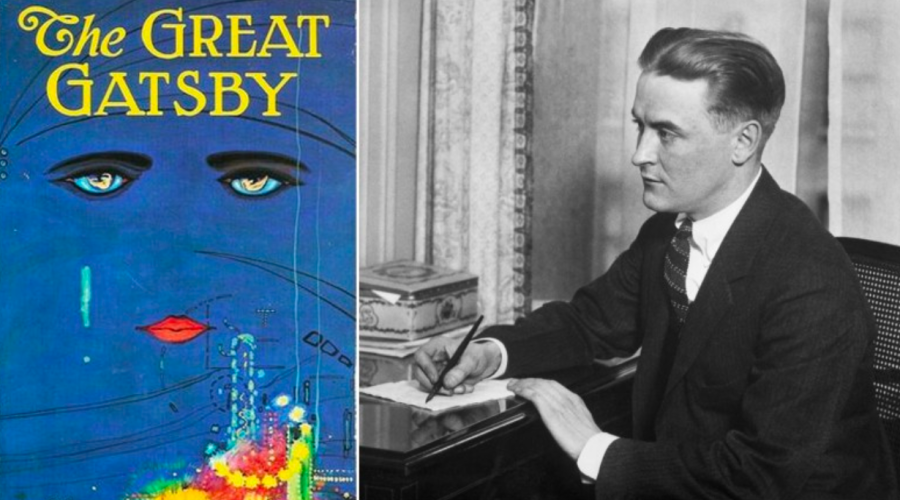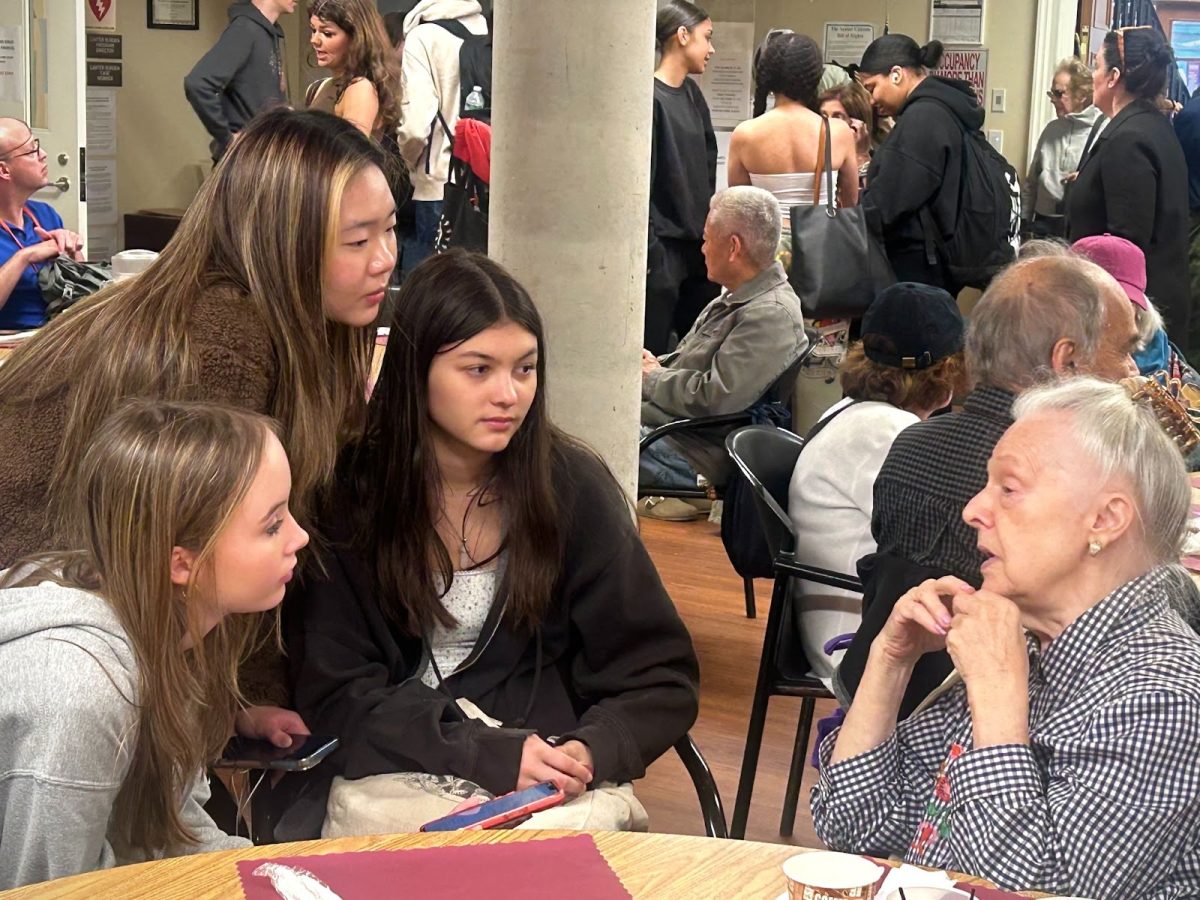Classic or Garbage?
Eat My Dust, Fitzgerald
April 5, 2022
Francis Scott Fitzgerald is known globally for his awe inspiring novels and writing style. He lived through the Jazz Age and the Great Depression of America. Although he has been portrayed as this pristine character with genius literary skill, that couldn’t be further from the truth. Simply put, he is a fraud who’s classic, The Great Gatsby gained recognition solely because of a message that reinforced the idea that the American dream is reachable, embodied in the character “Gatsby,” as well as the interpretation of corruption through wealth.
The idea of the American dream is very idealistic and completely up to interpretation, so to determine that it is attainable, gives people false hope. Ultimately the plot is not engaging and is filled with lame and underdeveloped characters.
Fitzgerald’s image seems to be respectable, but behind the mask of “ingenious classical writer,” there is much to reveal. Admittedly, it was hard to find any slander regarding him or his books, other than his alcohol abuse, conceited attitude, and dysfunctional marriage (Although this was partly due to the fact that during his time society was a lot more tolerant and turned a blind eye to such aggravations). Nevertheless, it has become quite clear that, as a person, Fitzgerald was not widely liked, and for good reason.
Beginning with his conceited attitude, Fitzgerald was known for being a huge misogynist, perhaps that’s why he created sexist works of art? Ernest Hemingway, another notable novelist (although he has some issues of his own) was somewhat close with Fitzgerald, and even he acknowledged that Fitzgerald had a need for validation and allegedly denounces him in his memoir, A Moveable Feast.
Additionally, Fitzgerald’s relationship with the film world was strained, due to his unlikeable personality, and intellectual arrogance, and this behavior was a projection of the trouble he faced at home. Zelda and Fitzgerald, a seemingly epic and perfect romance, faced its number of problems. Many of the issues they faced were rooted in both of their self-destructive alcohol habits. This created a toxic environment riddled with adultery, jealousy, and lasting quarrels that sometimes turned violent. While Fitzgerald recognized Zelda’s creative and intellectual potential, he was very unsupportive and wouldn’t allow her to have a career on her own, due to his competitive nature and misogynistic mindset.
As a husband, Fitzgerald was very restricting, which allegedly led to Zelda’s mental collapse. She was diagnosed with schizophrenia and other psychiatric illnesses that Fitzgerald exploited in his novel Tender Is the Night. Now if that in itself doesn’t make you question his moral code, this will: Before using his wife’s mental instability for revenue, he had plagiarized her diary for his second novel, The Beautiful and the Damned, definitely against her will.
She retaliated, angering Fitzgerald, and so he made a public statement, calling Zelda a “third-rate writer, which is slightly better perhaps than being a first-rate drunk.” Shocked is an understatement when I heard that Fitzgerald acted in such a childish and insensitive manner. He is known for being this genius writer who’s smart with his words, and then goes on to be so informal and bluntly insulting? This further emphasizes his anti-feminist outlook, which is also evident in the female heroines of most of his novels.
Will Smith recently said “life imitates art.” In the case of Fitzgerald, maybe it’s no coincidence that a misogynist writes books full of misogynistic characters. This does pose the question of whether artists should be separated from their artwork, and while some may believe in not judging a book by its author, in this case, I think it’s fair to at least take into consideration who Fitzgerald was as a person, since that seems to have impacted his writing.
If you’re trying to be charitable and give Fitzgerald the benefit of the doubt and put aside his character flaws, let’s take a look at his “classical masterpiece,” known as The Great Gatsby. Especially in this book, Fitzgerald uses female characters in order to reinforce the notion that women are “beautiful little fools” who are ignorant and dumb, portrayed specifically through the character of Daisy Buchanan.
It’s almost as if Fitzgerald makes his characters purposefully unlikeable, and this isn’t only the case for Daisy. Aside from his sexist tendencies, Fitzgerald also uses Nick Carraway as the narrator but he is simply an observer and never gets involved. While this could be intentional, it makes the writing and book in general come off as monotonous and trivial, since there are no opinions to provide perspective.
Furthermore, the protagonist of this book, Gatsby, was portrayed as obsessive since he can’t seem to forget about a relationship he was in five years ago. Maybe that was supposed to make him relatable and evoke sympathy from the readers, it does the opposite. Not only is his character loathsome because of his neurotic behavior, but also because he was majorly underdeveloped. The readers are never introduced to the root of his relationship with Daisy, and therefore have nothing to help them understand why the book plays out the way it does, making the story more superficial than enlightening.
It’s hard to form any connection with characters when they aren’t built up well. The characters aren’t the only factor to the downfall of this book. The plot is very basic and personally I don’t see how such a simplistic storyline could be considered a classic or must-read. Lastly, (spoiler) Fitzgerald ends his book with a car crash and the death of Gatsby. If this isn’t a Deus Ex Machina/another form of lazy writing from an author, then I don’t know what is. As soon as the plot gets tricky Fitzgerald decides to quickly resolve it, which in this case just further proves how passive and frankly how unremarkable this story and the author of it really is.
All in all, “The Great Gatsby” was markedly unimpressive for the title it has received. If you want to read a book with dull characters and a plot seemingly thought of by a middle schooler, go ahead.
Sources:
https://www.theteenmagazine.com/this-classic-novel-that-you-ve-probably-read-is-rubbish
https://blog.bookstellyouwhy.com/ernest-hemingways-feelings-toward-f-scott-fitzgerald
https://culturacolectiva.com/books/scott-zelda-fitzgerald-great-gatsby-plagiarized-his-own-wife/
https://thecritic.co.uk/why-you-dont-want-to-be-an-f-scott-fitzgerald-flapper/




























Gabby Sevita • Apr 7, 2022 at 11:30 am
I’m obsessed with your writing and critiques. you’re such an amazing writer.
Julia Hendler • Apr 7, 2022 at 10:38 am
This is an interesting perspective. I didn’t realize how many parallels there are between The Great Gatsby and Fitzgerald.